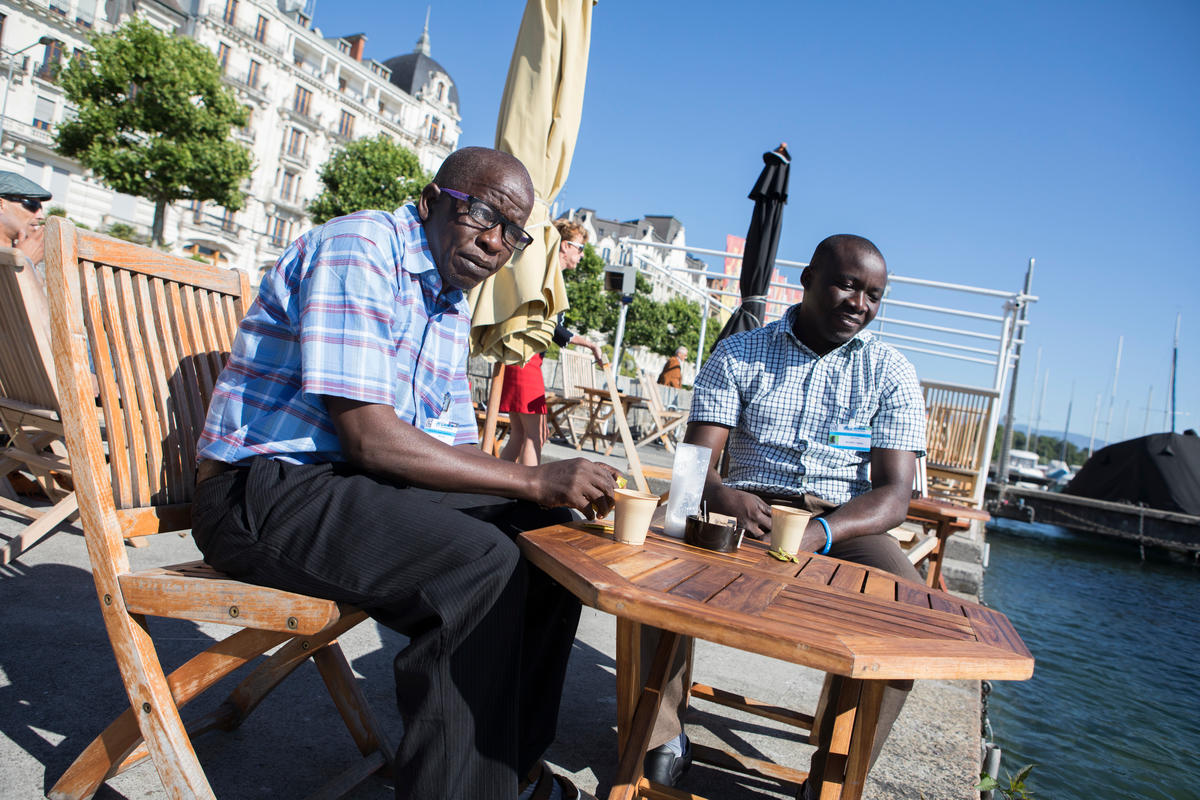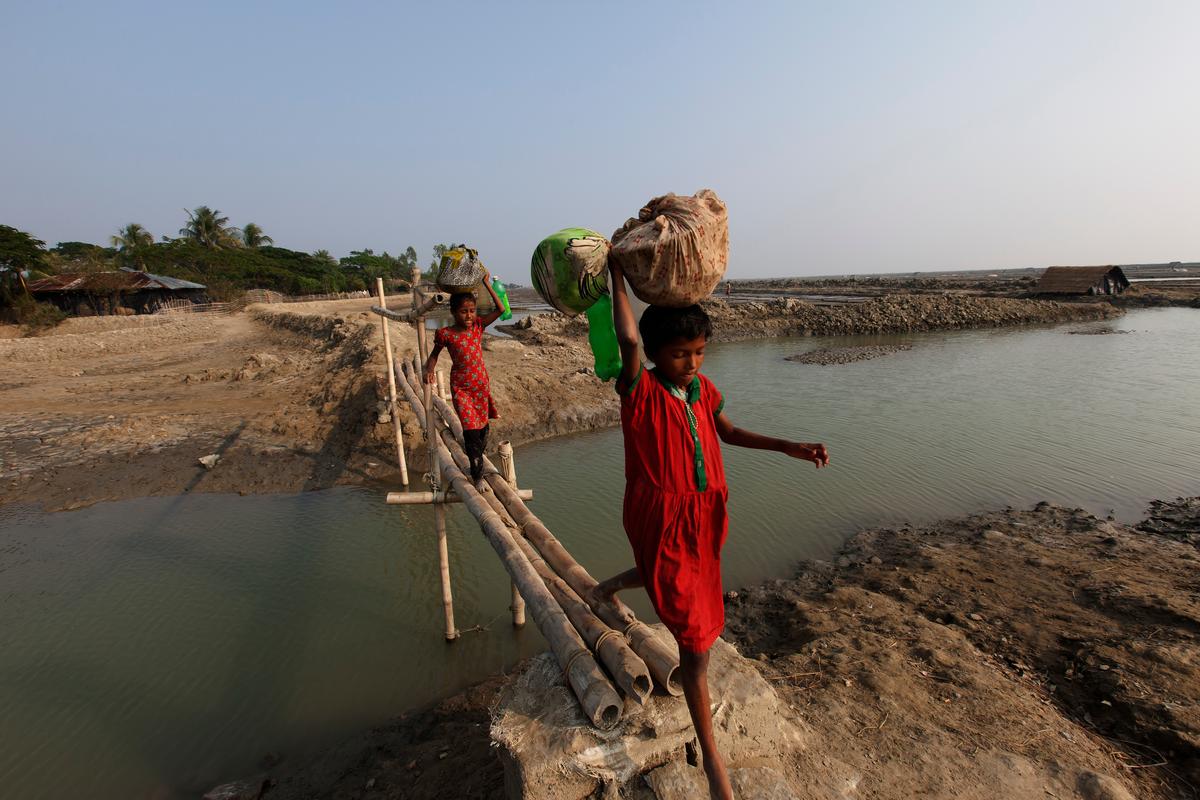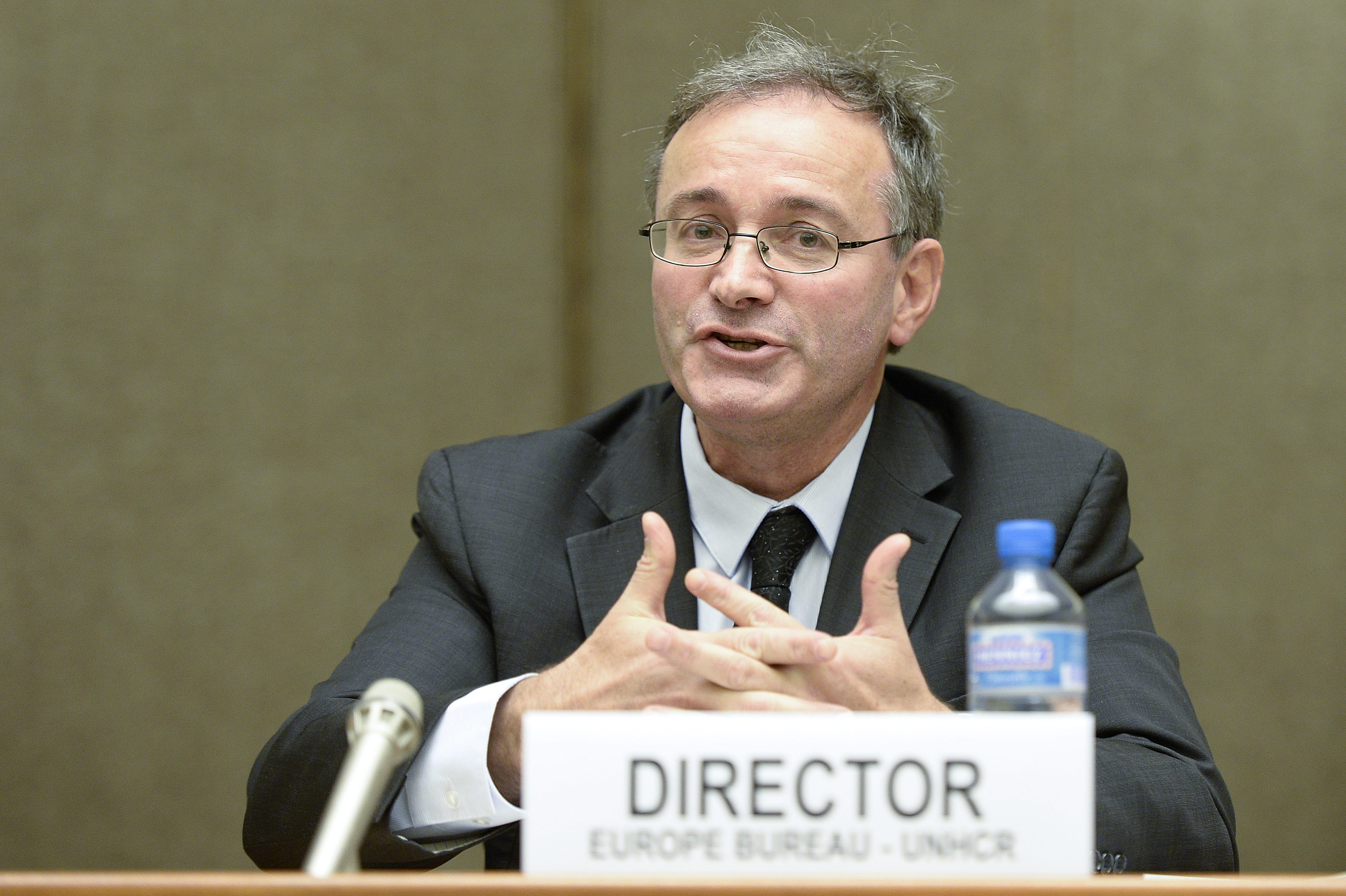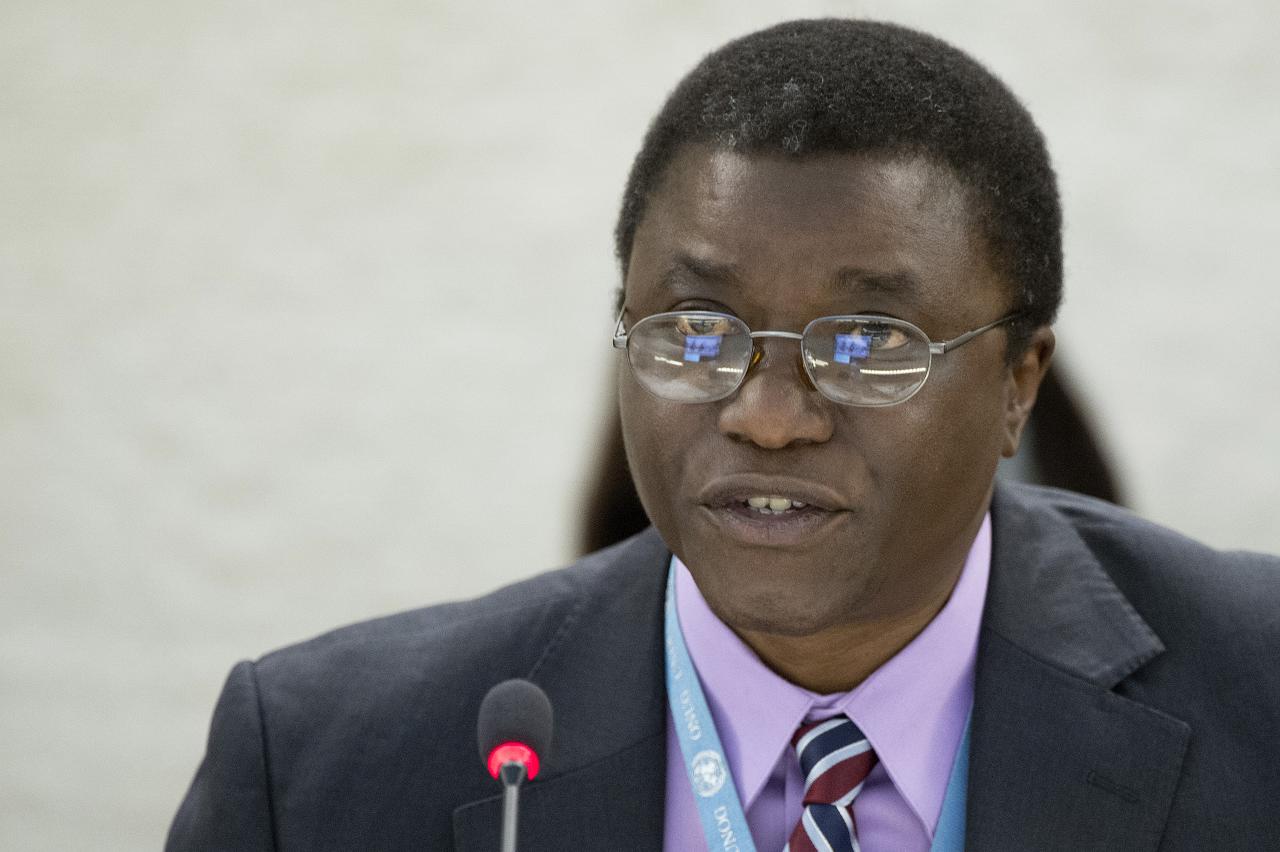Q&A: Japanese clothing retail giant helps refugees in unique ways
Q&A: Japanese clothing retail giant helps refugees in unique ways

GENEVA, January 18 (UNHCR) - UNHCR values its relationship with corporate partners, who have become an increasingly important part of its private sector fund-raising base. The refugee agency's partnership with UNIQLO, Japan's leading clothing retail chain, has been developing in exciting ways over the past few years. Initially, UNIQLO distributed used clothes to refugees in camps. Customers were encouraged to take their old clothes to UNIQLO outlets and these were then sorted, taking cultural needs into account, and distributed to the needy. Then UNIQLO worked with celebrities to design a series of T-shirts with special messages about refugees. UNIQLO will work with Laura Ashley this year in an expansion of the programme. And last year, UNHCR and UNIQLO signed a new partnership agreement to further develop their cooperation. UNHCR fund-raiser Cecile Pouilly recently caught up in Geneva with Yukihiro Nitta, a senior executive of UNIQLO's holding company, Fast Retailing. The group senior vice president specializes in corporate responsibility issues. Excerpts from the interview:
Tell us about the cooperation agreement between UNHCR and UNIQLO
So far we have been providing clothing for refugees with the cooperation of UNHCR. In the future, we would like to further expand our relationship in other areas, such as internship programmes, cash donations and charity programmes.
What motivated you to form this partnership?
Our mission is to produce and sell casual clothing to people all over the world. We produce and sell 600 million items a year, so there is a lot of clothing that is no longer worn. We started collecting some of these used items in 2006 and found that 90 per cent of them were still clean and usable.
We started looking for partners who could help us distribute this clothing. We got in touch with the UNHCR office in Tokyo and they were keen for us to distribute clothing to refugees all over the world. The people in refugee camps have access to water, food and medical care, but there are still not enough clothes for everyone.
How successful has this recycling initiative been to date?
So far we have distributed more than 5 million items of clothing to refugees. In 2012, we plan to reach 10 million and, within 5 years, we hope to collect 43 million items so that we can give one item of clothing to every [forcibly] displaced person in the world.
The most popular items are fleece jackets and sweatshirts. The good thing about these is that they are easy to wash and they dry quickly.
Tell us about your new internship programme for refugees
In Japan, refugees who study at university can become interns in our stores for two weeks. We hope to expand the programme to up to 50 interns and to include it in all UNIQLO shops around the world.
In the first year of the programme, we have received four interns. One is from Vietnam and three from Myanmar. We provided them with valuable experience and taught them business, management and teamwork skills at our stores. They are all still students, but two are working part time for us.
And what about spreading awareness among your staff about refugees?
We have sent two of our full-time employees to UNHCR-run refugee camps in Nepal [where UNIQLO has distributed clothes in the past]. The idea is to understand how our clothing helps refugees in Nepal and, if possible, the findings will be used in our social business initiatives. We are now conducting social business in Bangladesh, which means that we are producing and selling clothing at very low prices for the very poorest people. I think the situation for refugees and poor people is a very similar one. The idea is to promote our social business. Many of our employees are interested in going to refugee camps and more will hopefully go in the future.
Last October, UNIQLO donated US$2 million to UNHCR for the Somali displacement crisis. What motivated you?
We receive a lot of news in Japan about the situation in Somalia and the famine in the region [the worst in more than 50 years]. Our chief executive officer, Tadashi Yanai, is very concerned about the situation. Of course our clothing can help the affected people, but cash is more important at this stage.
Do you see other potential areas of cooperation?
In our talks here in Geneva with UNHCR, we discussed the possibility of working together with other companies like UPS and IKEA. Such cooperation with international organizations, NGOs [non-governmental organizations] and other companies is very important for us in order to create a network and to provide even more support to refugees.
Do you think most people in Japan are aware of refugee issues?
No, they are not concerned. However, since we started our initiative in 2006, more Japanese people have been made aware of refugees. We collected 4 million items of clothing last year. If a customer brings an average of 10 items it means that 400,000 pieces of clothing have been brought back to our stores. As a result people are very interested. We also help people become more aware through our website and brochures.









